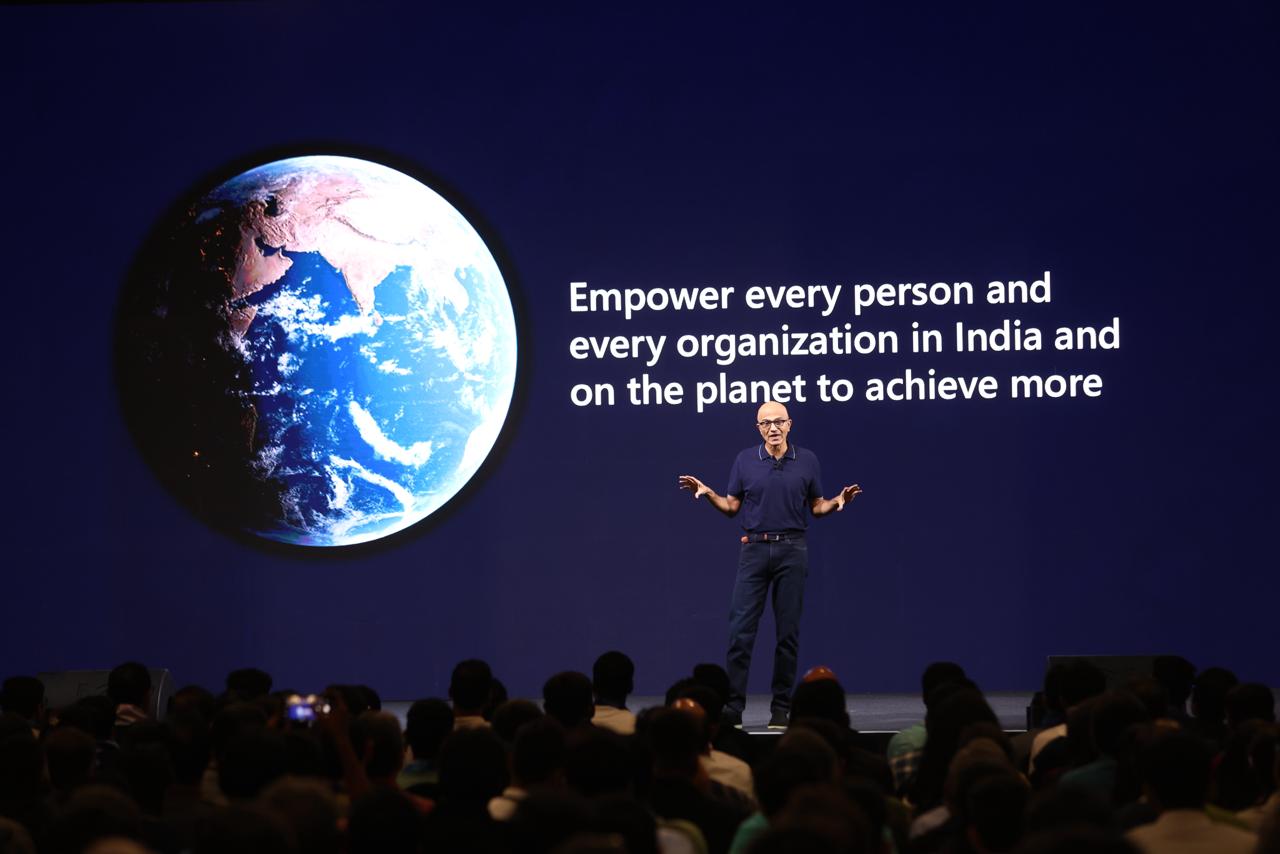Microsoft will provide skilling and certification to 75,000 women developers in India in 2024 as part of its ‘Code; Without Barriers’ programme
Bengaluru, NFAPost: India is expected to overtake the US as the largest developer community on GitHub by 2027, Microsoft chairman and chief executive officer Satya Nadella said during his address to 1,100 developers and technology leaders at the Microsoft AI Tour in Bengaluru on Thursday, Business Standard reported.
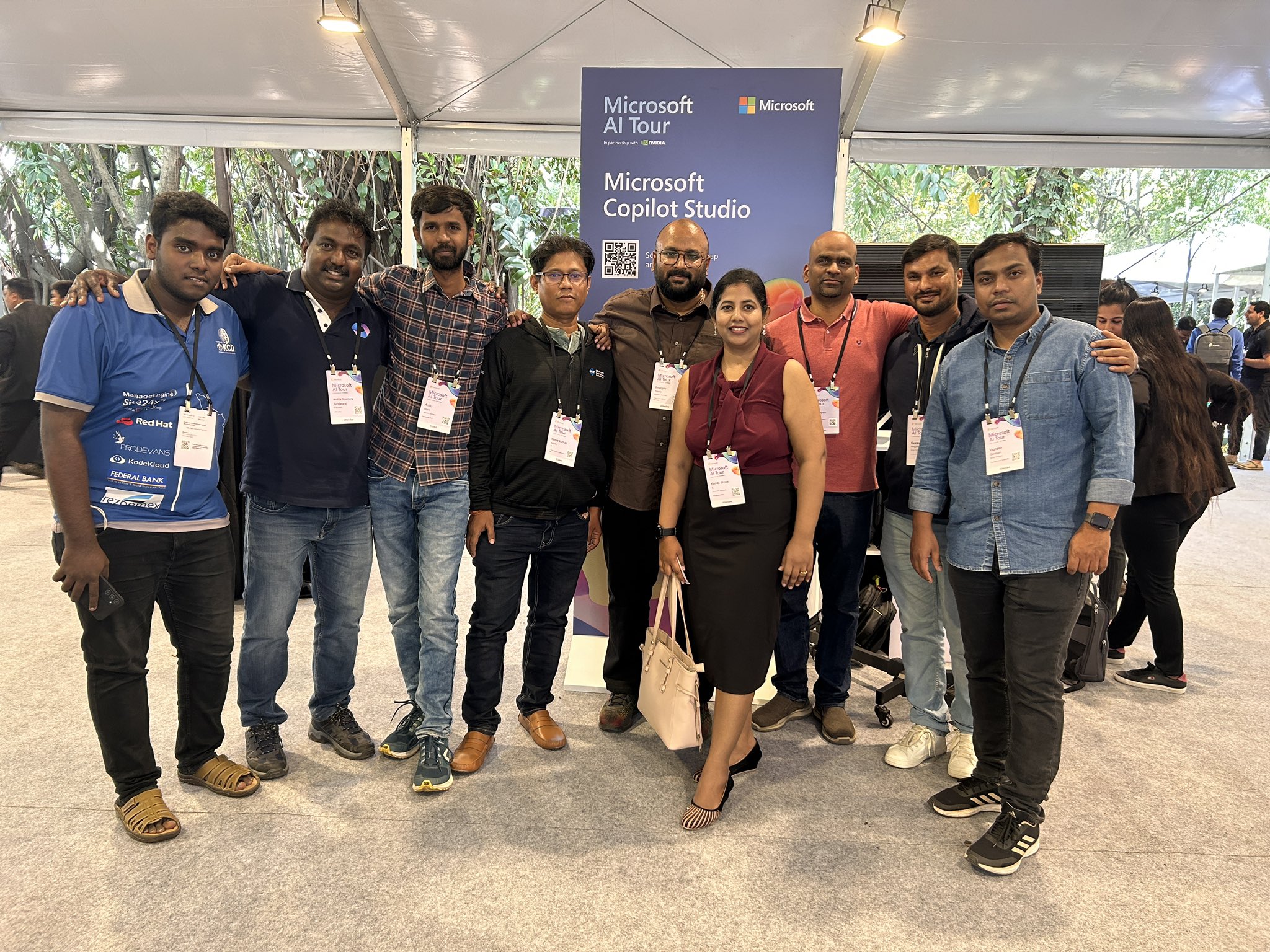
India is already the fastest-growing market on GitHub, a Microsoft-owned software development platform, with 13.2 million developers using the platform.
India also has the second-highest number of generative AI projects (GenAI) on GitHub after the US, Nadella said as he highlighted the pivotal role of India’s developer community in building cutting-edge products and solutions.
“This next generation of AI is changing how and what developers build everywhere, including in India. It’s fantastic to see how India’s developer community is applying our technology and tools to build the future for India and the world,” said Microsoft chairman and chief executive officer Satya Nadella.
Microsoft chairman and chief executive officer Satya Nadella also said that Microsoft will expand its ‘Code; Without Barriers’ programme to India this month, as the company aims to democratise access to tech skills nationwide.
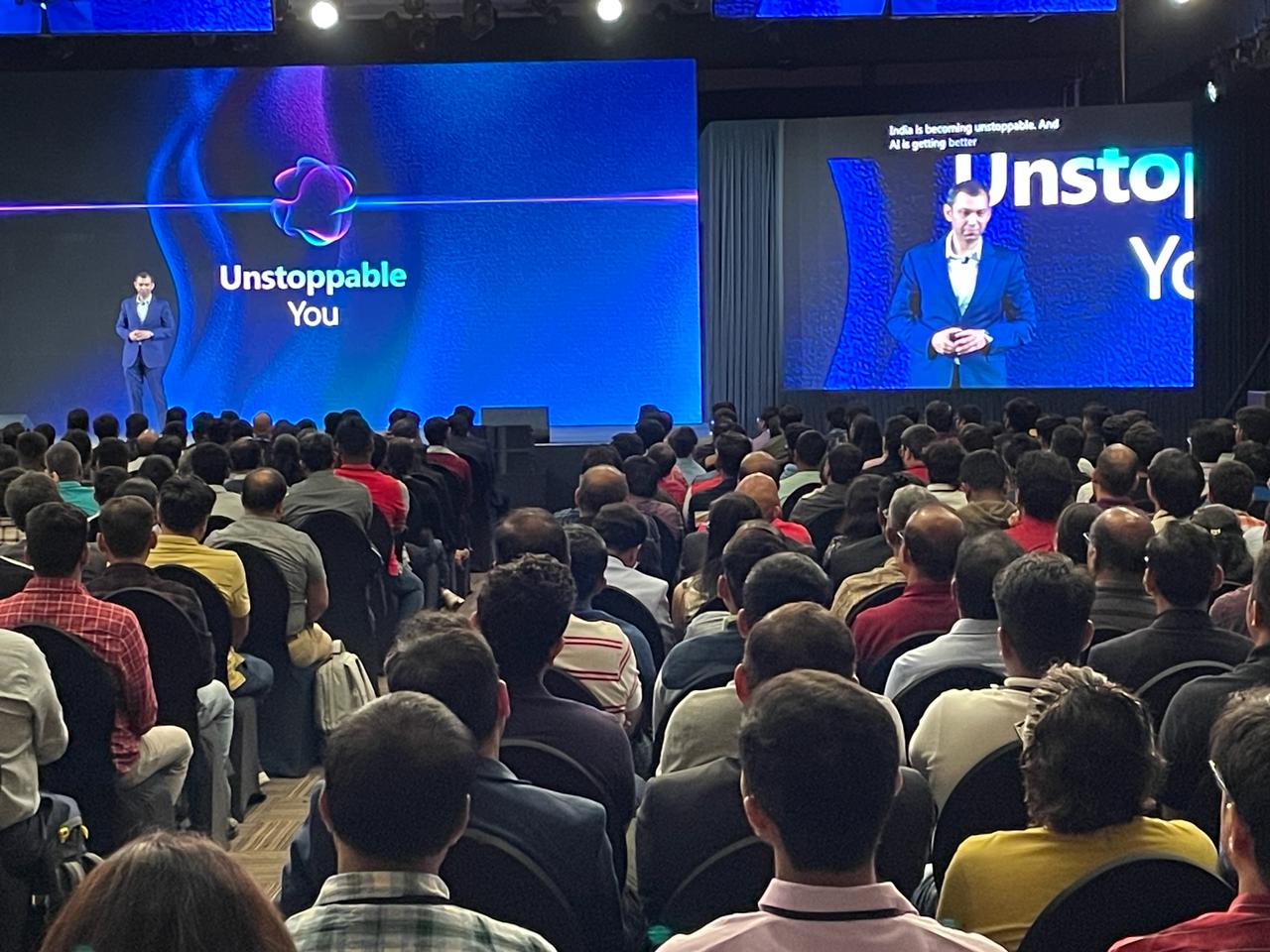
As part of this programme, Microsoft will provide skilling and certification to 75,000 women developers in India in 2024. The programme was launched in 2021 across nine Asia Pacific (APAC) countries to help close the gender gap in the region’s fast-growing cloud, AI, and digital technology sectors.
The ‘Code; Without Barriers’ expansion builds on other recent developer and skilling initiatives by Microsoft in India. On Wednesday, Nadella announced Microsoft’s new skilling investment in India to empower people and organisations to thrive in the AI era. The investment will see Microsoft provide 2 million people in India with AI skilling opportunities by 2025 through its ADVANTA(I)GE INDIA initiative.
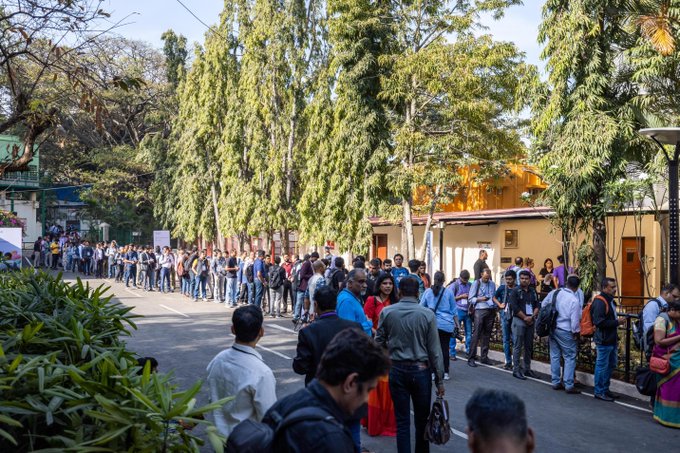
In January this year, Microsoft helped 100,000 developers to advance their careers in AI through its ‘AI Odyssey’ initiative. The initiative allowed participants to take the first step towards becoming a subject matter expert in AI by learning new skills and earning Microsoft credentials. Microsoft is expanding the AI Odyssey programme to other Asian countries, including Australia, New Zealand, Japan, Indonesia, Korea, China, Vietnam, and Thailand, after receiving a positive response from India.
In November 2022, Microsoft India launched the Azure Society of Excellence (ASE) in collaboration with premier technology institutes like the Indian Institutes of Technology (IITs), Indian Institutes of Management (IIMs), and BITS Pilani to work with start-ups and their incubation cells. The exclusive programme provides technological support and mentorship to start-ups, helping them to become future-ready. Microsoft has successfully onboarded over 1,700 Indian start-ups to the Microsoft Founders Hub through the ASE.
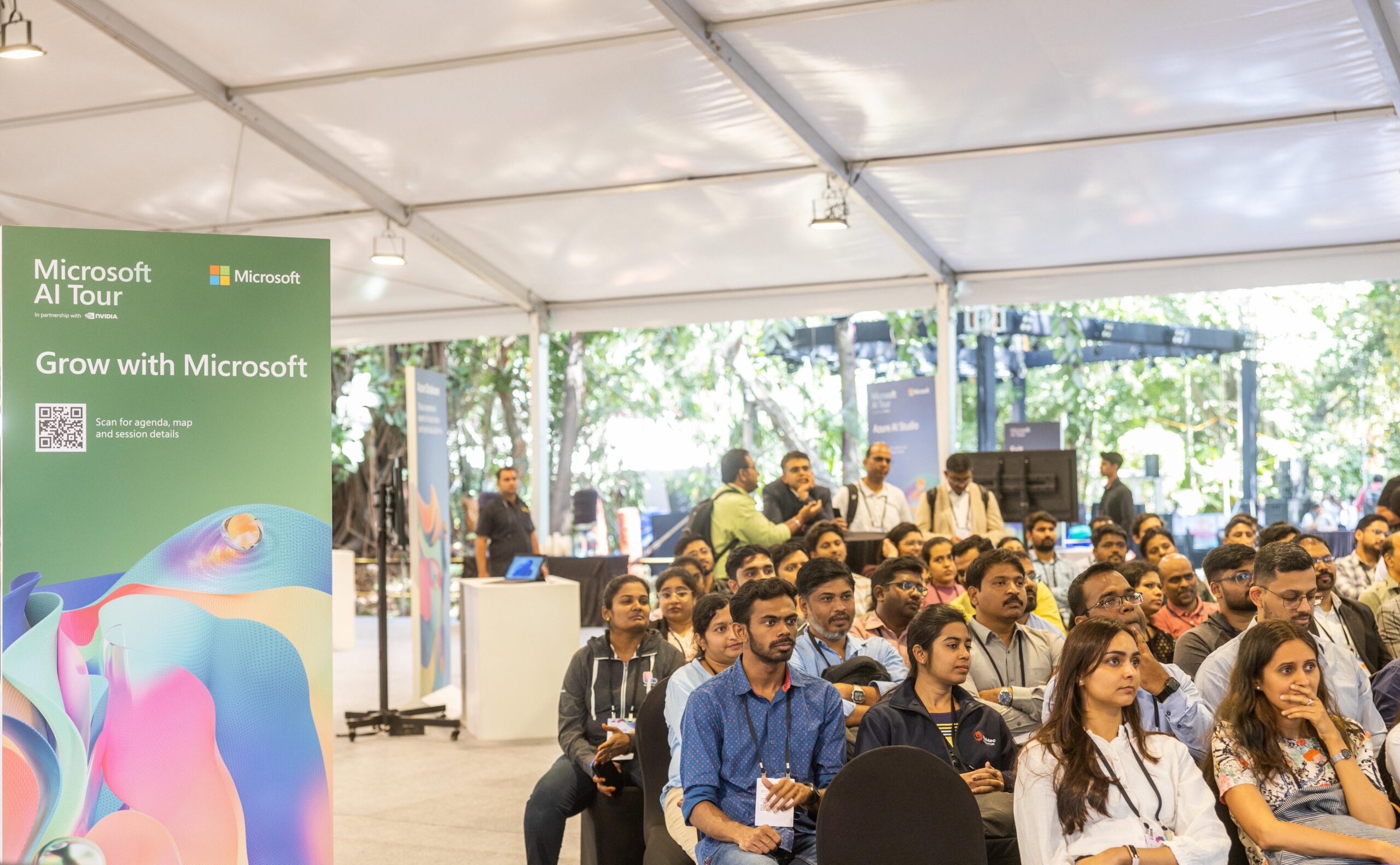
Talking about security and AI safety, Microsoft chairman and chief executive officer Satya Nadella said, “When we think about building powerful applications and models, we got to have a robust zero-trust security architecture…in everything from endpoint to identity to application and infrastructure. This is a huge focus for us.”
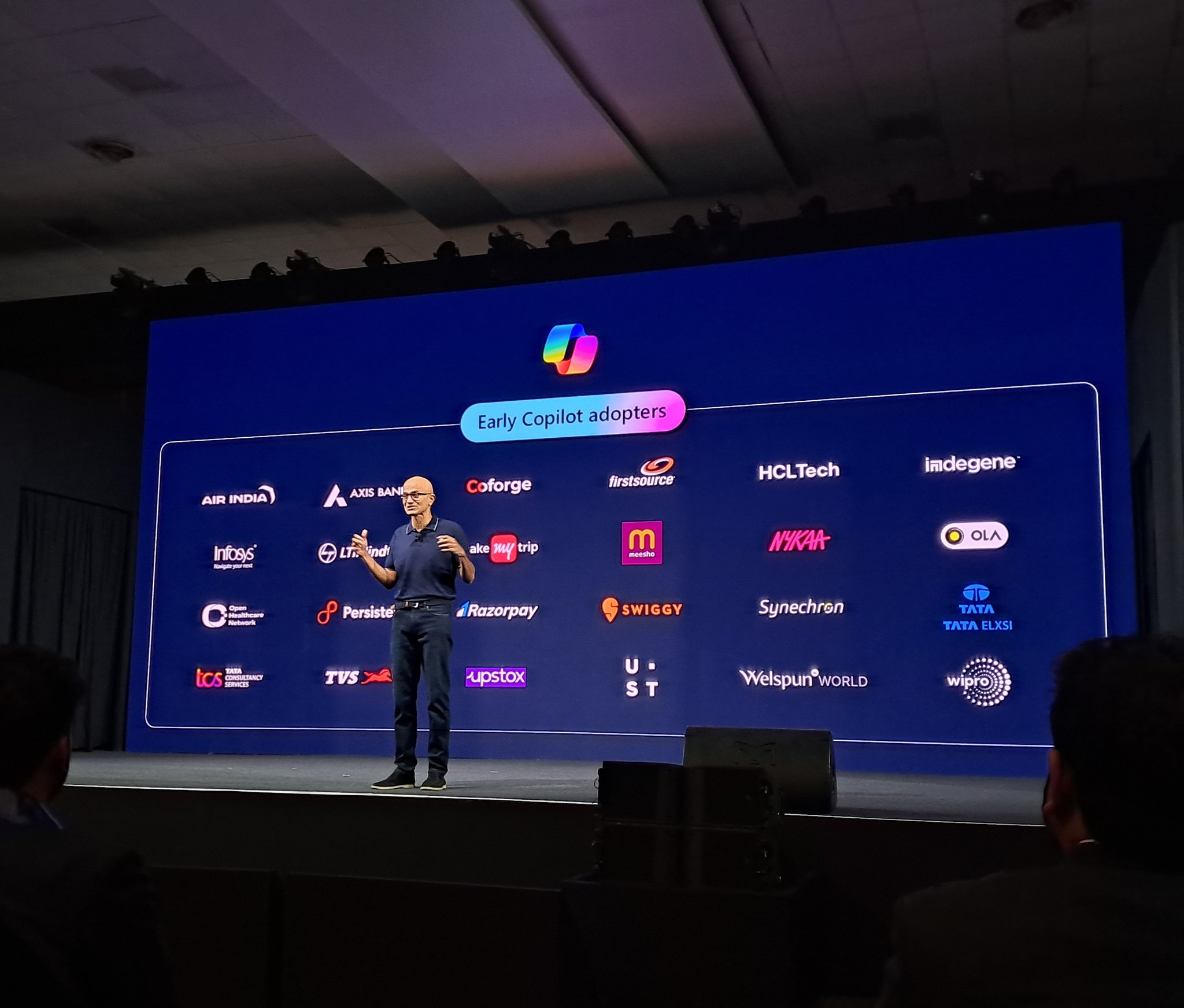
Microsoft has collaborated with various developers, startups, and large enterprises in India to help accelerate their AI adoption. For example, Indian GenAI startup Sarvam AI announced that it is working with Microsoft to make its Indic voice large language model (LLM) available on Azure. The startup aims to make the development, deployment, and distribution of GenAI apps in India more robust, better performing, and cheaper.
Shiksha Copilot, developed by the Sikshana Foundation and Microsoft Research India, aims to improve learning outcomes helping teachers develop a complete lesson plan with engaging content in 60 to 90 seconds instead of 60 to 90 minutes. It is currently deployed in about 30 rural and urban schools in Bengaluru, India, and the Sikshana Foundation is working with Microsoft to deploy it at scale.


